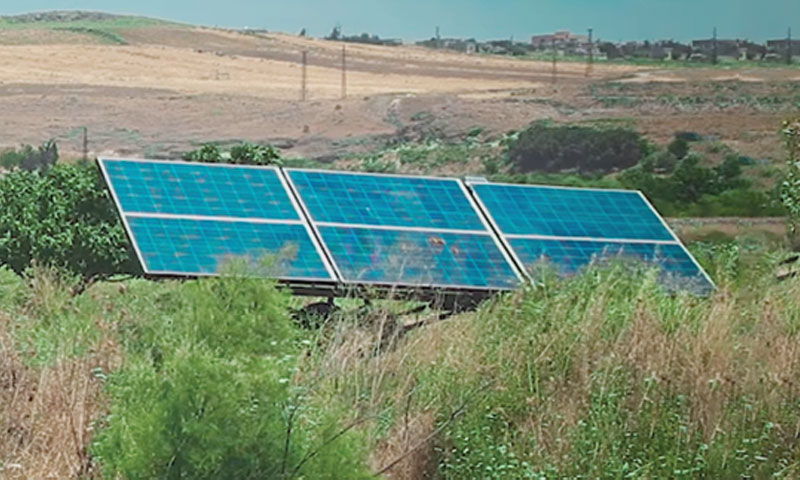



80 Farms depend on solar powered irrigation systems, replacing the classical water pumpsr by eco friendly ones. Under the leadership of the Food and Agriculture Organization of the United Nations( FAO), Violet Organization launched the solar-powered irrigation project for encouraging the farmers to make agriculture more sustainable, productive and diverse.
Urgent Need and Support is Not Available for Everyone
The 2019 FAO plan seeks to assist 3.5 million people by 120 million to be invested in projects seeking to support agricultural productivity and reduce food insecurity, which 5.7 million Syrians acutely suffer from and 2.5 million at risk to suffer, according to the UN estimates.
FAO estimates that 600,000 farm households need to be provided with appropriate agriculture equipment, and that the project helped to meet the most vulnerable families’ needs as pointed out by Abdulrazeq Awad, director of the Food Security and Livelihoods Program of Violet organization.
Awad told Enab Baladi about the eligibility requirements according to which the farm households were able to get the solar panels and solar water pumping systems: female-headed families of three children or more with no fixed income, hungry families with no breadwinners, getting no wheat or vegetable distribution, families with disabilities, and those headed by elderly.
The project’s main condition is that the area of land does not exceed one hectare, ensuring everyone benefits from the project.
The new solar water pumps depend on the solar radiation input, reaching the thermal panels, selected to mode match the pump radiation.
The chief executive officer (CEO )of the project affirms that the project’s purpose is to decrease the fuel cost and repair the farmers’ pumps, and the organization will initiate a new project in the next few months.
FAO predicts that the rates of food insecurity shall keep rising during the year in a sector that provides food to half of the Syrian population and contributes to 25-30% of the GDP(Gross Domestic Product).
if you think the article contain wrong information or you have additional details Send Correction